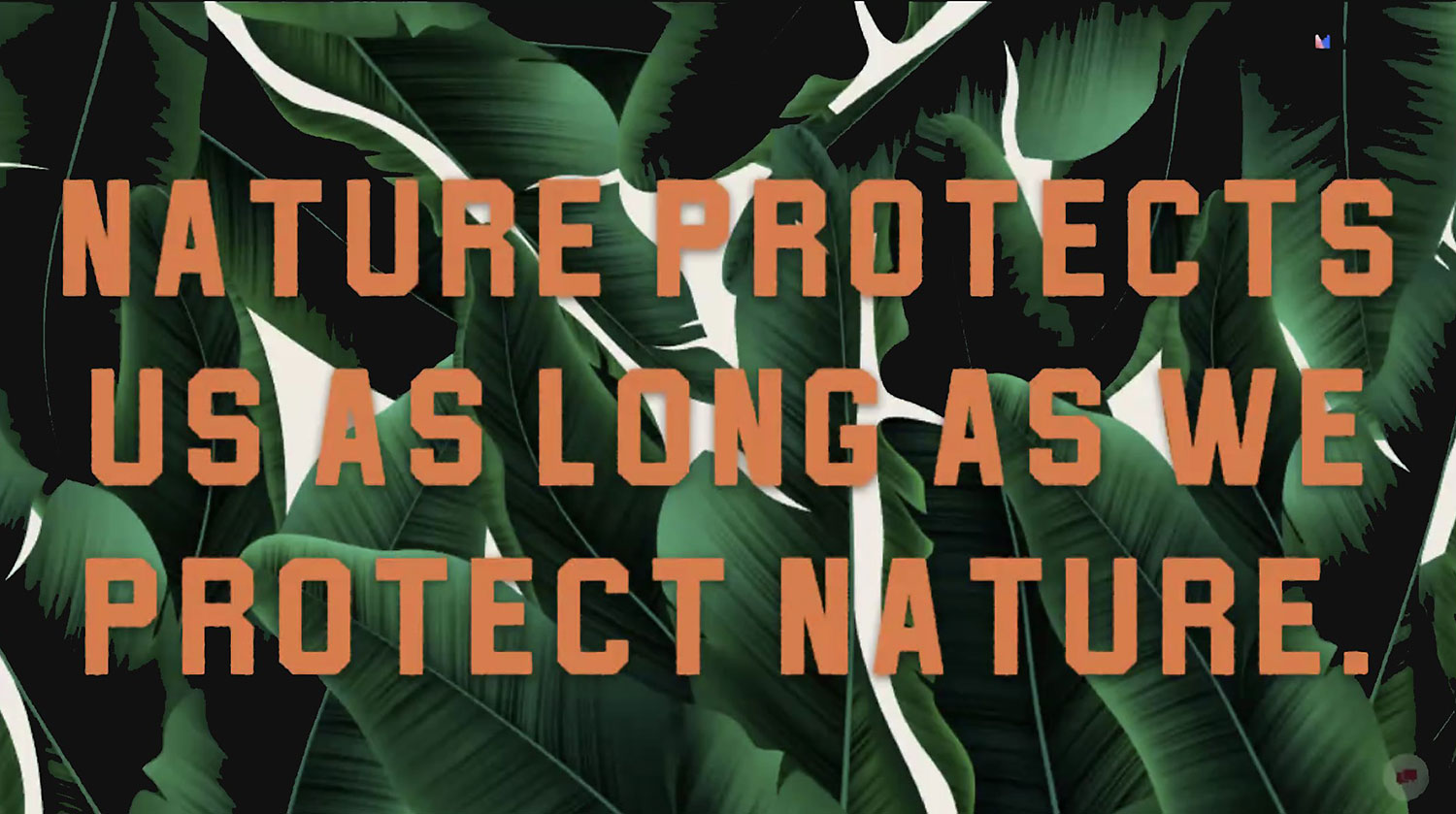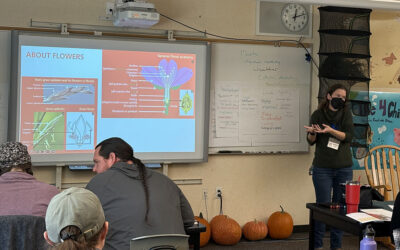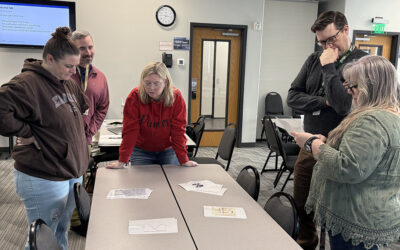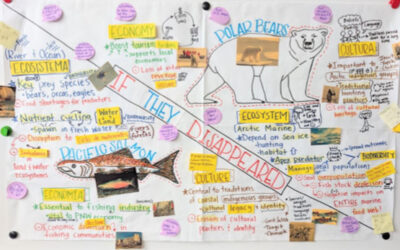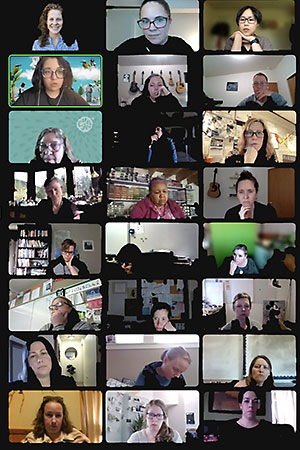
Dr. Jessica Hernandez shared her knowledge as the keynote speaker at the Climate Justice Symposium. Dr. Hernandez is a transnational Indigenous scholar, scientist, and community advocate based in the Pacific Northwest.
Teacher Casey Jones’ family includes migrant farmworkers, whose lives are directly affected by climate change and social injustice. The students at Rowena Chess Elementary School where Casey teaches also see the effects of these twin crises in their daily lives. Challenged to teach climate change in conservative communities and in communities that are unfairly being impacted by climate change, Casey and teachers across the state need support and resources to bring climate justice learning into their classrooms.
EarthGen’s Climate Justice League, which first launched in SW Washington three years ago, provides teachers exactly the localized, expert knowledge they need to start teaching climate justice. The cohorts who study together form a supportive professional community where teachers can continue to share their project ideas and learn from classroom experiences.
Responding to the growing demand for this kind of training, EarthGen collaborated with Stacy Meyer, Regional Science Coordinator at ESD 112, to develop three new Climate Justice League cohorts across the state. Nearly 100 teachers joined these new cohorts in fall 2021. Teachers shared their challenges and resources while connecting with peers, and members from past cohorts were on hand in a new mentorship role as “Climate Justice Guardians.”
“When I started teaching environmental science, several of the kids spoke up and said that they didn’t know if they believed in that science and that their family didn’t really trust that science,” said Celia Cummings, the science teacher at Waterville High School near Wenatchee. “Before taking this class, I don’t think I would have pushed for us to continue that conversation. EarthGen’s resources and information really made me think that I wanted to lean-in to that and have those conversations with my class. Once we started looking at the injustices and the data – the actual facts – the kids started to really recognize that they and their families have seen it and felt it.”
Regionally appropriate guest speakers joined each cohort. In SW Washington, local grassroots activist and 2019 Goldman Environmental Prize winner Linda Garcia shared insights on navigating challenging conversations and making community voices heard. In NW Washington, Maria Blancas, scientist at the University of Washington and the daughter of migrant workers, shared her research on the social and environmental impacts of our current food system on farmworkers. In Eastern Washington, teachers heard from Will Merritt and Nora Henning, Spokane high school students who presented their climate activism work.
“Coming from a family of indigenous peoples and agricultural workers, I feel sad and a bit angry that we are still experiencing this type of injustice. As an educator I am committed to provide a platform for all voices to be heard. Students need to know that no matter their background or heritage they have the right to be heard,” said Valerie Espinoza, teacher at Maya Angelou Elementary School.
All three new cohorts met for four workshops before coming together for a joint session in April. At the end of the series, each teacher had completed an action plan for engaging their students in climate science with a social justice lens.

